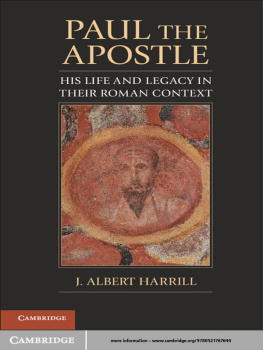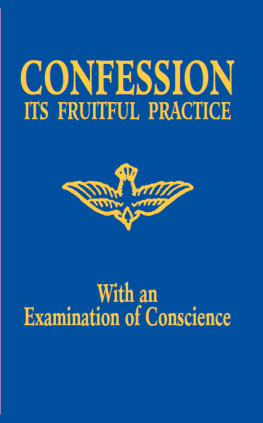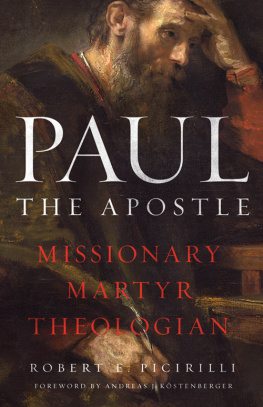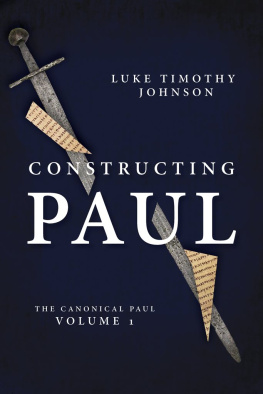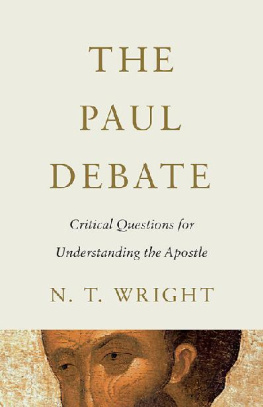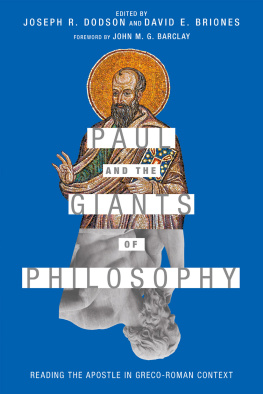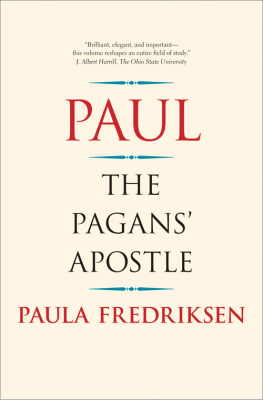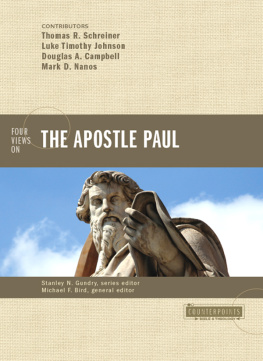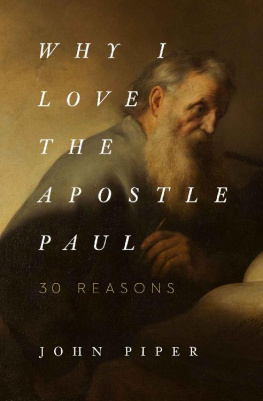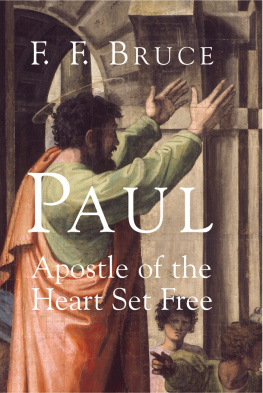Writing this book has made me rethink what a historical biography of the apostle Paul should be for students and general readers. That intellectual labor has also gone into teaching the course Paul and His Influence in Early Christianity in its multiple versions to hundreds of undergraduates at Indiana, DePaul, and Creighton Universities for nearly twenty years. The fresh, vigorous dialogue in class with such curious minds, at times astonishingly brilliant, has kept my teaching a challenging and lively experience. Rethinking the historical figure of Paul in his context of the Roman Empire continues to sustain my enthusiasm for New Testament studies.
Let me explain briefly what this book is. I aim to bridge the divide between the findings of professional academics and the expectations of a nonacademic audience. I have written strictly as a historian, drawing conclusions about what we can know from the available evidence rather than accepting the truth claims of a religious faith. When reading this book, I suggest keeping at hand a copy of the New Testament so that you can look up the various biblical passages as they arise in the book's analysis. For nonbiblical writings about Paul, Meeks and Fitzgerald (2007) provides an excellent sourcebook and a potential companion volume.
Books on Paul have an astonishing abundance; hundreds have appeared in the last two decades alone. There are bibliographies and reviews of research, comprehensive theological treatments of his life and thought, chronologies and biographies, accessible introductions, anthologies, and reference works. Why another book on Paul? In a word, frustration. I had grown frustrated with the rush of popular books that depict Paul as the most important early church leader of his day, even the second founder of Christianity (or Anti-Christ, after Friedrich Nietzsche's famous declaration). That romantic notion, which dates to the nineteenth century, lacks historical support. I also find problematic the academic studies known as Paul and empire books, which claim to set Paul over against his own culture of the ancient Roman world. In their view, Paul outright opposed or otherwise negotiated his way around Roman imperialism in order to subvert and so destroy it. In contrast to such studies, the issue for this book will be to ask different questions: How did Roman culture shape Paul's thinking? What did the rhetoric and theology of his writings mean in their Roman context? How did this context create the apostle's various legacies after his death? I seek to understand the participation and deep implication of Paul's letters in their wider culture, in order to investigate the figure's Roman identities in life and legend. This book is, therefore, a critical response to what I find to be seriously misleading claims in recent books on Paul and his historical context.
I also challenge contemporary conceptions of Paul's legend, which continue to have enormous influence on Western culture. A Farewell to Arms , the World War I novel by Ernest Hemingway (1929), set in Italy, offers a literary example of this influence. Early in the novel, a notorious grand narrative about Paul arises the doctrine of Original Sin. ( Original Sin characterizes the state of every human being to have an inescapable predisposition to moral depravity as a result of Adam's fall.) In a moment of confession to his army chaplain, the American protagonist Frederic Henry expresses his exasperation over his immoral behavior while on leave by paraphrasing a famous line of Paul: I had drunk much wine and afterward coffee and Strega and I explained, winefully, how we did not do the things we wanted to do; we never did such things (Hemingway 1929, 13; see Rom. 7:19). Later, his macho alter ego Rinaldi, a carousing Italian army physician, paraphrases another line attributed to Saint Paul (1 Tim. 5:23) to bait this same chaplain into an argument over whether Scripture supports the soldierly habit of drinking. Failing to catch the priest's ire, Rinaldi grouses about the hypocrisy of Paul. Here is the scene:

